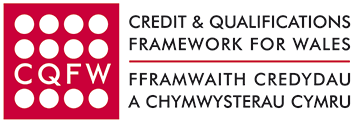Understand Mental Health Problems
- Unit ID:
- CCY227
- Unit Code:
- PT13CY004
- Level:
- Three
- Credit Value:
- 3
- Sector:
- 1.3
- LDCS:
- PT1
- GLH:
- 14
- Last registration date:
- 31/12/2021
- Lower age restriction:
- 16

Purpose and Aim
This unit aims to provide the learner with knowledge of the main forms of mental health problems according to the psychiatric classification system. Learners also consider the strengths and limitations of this model and look at alternative frameworks for understanding mental distress. The focus of the unit is on understanding the different ways in which mental health problems impact on the individual and others in their social network. It also considers the benefits of early intervention in promoting mental health and well-being.
Learning OutcomesThe learner will
|
Assessment CriteriaThe learner can
|
||||||||||
|---|---|---|---|---|---|---|---|---|---|---|---|
|
|
||||||||||
|
|
Access to HE Grading Standards: (for learners registered from 1st August 2024)
- 1 - Knowledge and Understanding
- 2 - Subject Specific Skills
- 3 - Transferrable Skills
Access to HE Grade Descriptors (for learners registered before 1st August 2024):
- 1 - Understanding of the Subject
- 2 - Application of Knowledge
- 4 - Use of Information
- 5 - Communication and Presentation
- 7 - Quality
Assessment Methods:
From September 2021, centre devised assessments are permitted for all units on all Agored Cymru Access to HE Diplomas.
All assessment evidence completed As part Of an Agored Cymru Access To HE Diploma Is subject To external moderation.
Assessment Information:
There is no specific assessment information to be used with this unit.
If not specifically stated in the assessment information, a plural statement in any assessment criterion means a minimum of two.
Other Mappings:
Assessor Requirements:
N/A
Additional Information:
In learning outcome 1, assessment criterion 1, learners are asked to describe ‘the main types of mental ill health according to the psychiatric (DSM/ICD) classification system’. Learners should demonstrate knowledge of how types of mental health are categorised by their main signs and symptoms and how the system attempts to draw a line between mental health and mental disorder. Learners do not need to demonstrate detailed knowledge of each form of disorder within each category.